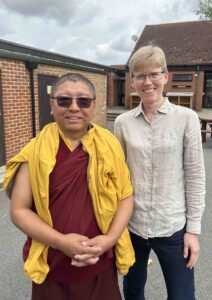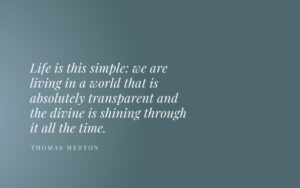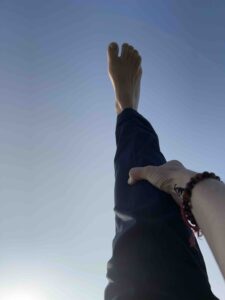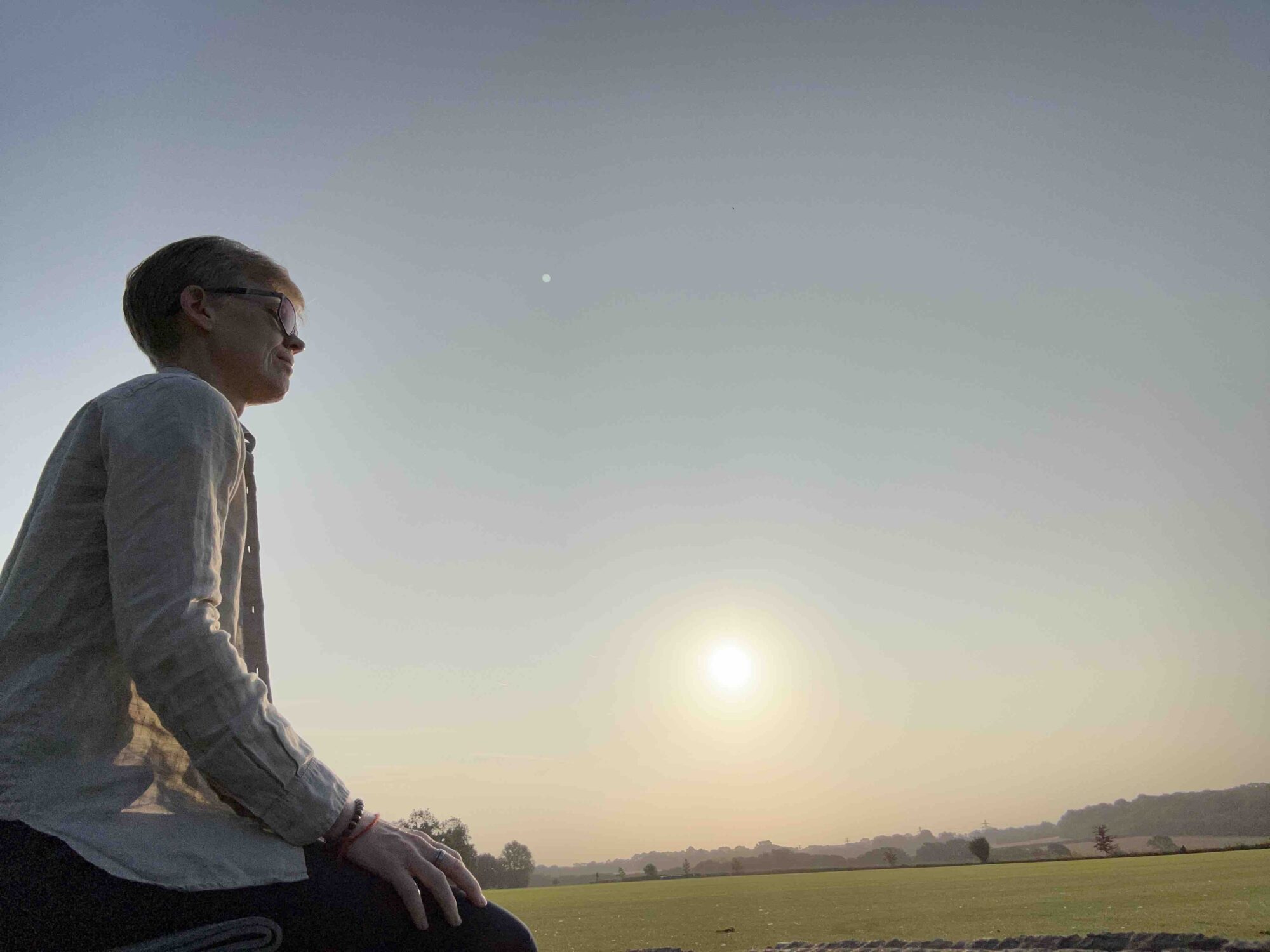Back from retreat, and spending my days settling back into “reality”. I haven’t found the transition as steep this time around. Maybe a testament to practice pervading more deeply into life and less “this” (normality) versus “that” (the container of retreat)? I certainly feel a little more practiced in the shift between worlds: a developing transparency of mind meeting the transparency of existence. I would also say that group retreat doesn’t feel as intense as solitary…
…but not to say that this past week didn’t come without its challenge: even in silence, it is amazing to experience how much mind projects; my aversion to being in the company of ‘strangers’, my judgement of others’ conduct…sometimes my patterns of thinking are really quite laughable*. But as Rinpoche outlined on the final morning of teachings, it is the adversity in everyday life (and reactions to it) that is our greatest teacher.
 This was my first time meeting Tibetan teacher Tsoknyi Rinpoche. Since becoming a Vajrayana student, I have spent some time studying with his brother Yongey Mingyur Rinpoche but always online; I have also spent time studying the work of their father, the much respected Tulku Urgyen Rinpoche**. Tsoknyi Rinpoche has been on my radar for sometime, his reputation for adapting traditional teachings for the Western mind an appeal. This attitude was evident in the retreat through his focus on the bodymind unit never being separate and helping people feel as much as think.
This was my first time meeting Tibetan teacher Tsoknyi Rinpoche. Since becoming a Vajrayana student, I have spent some time studying with his brother Yongey Mingyur Rinpoche but always online; I have also spent time studying the work of their father, the much respected Tulku Urgyen Rinpoche**. Tsoknyi Rinpoche has been on my radar for sometime, his reputation for adapting traditional teachings for the Western mind an appeal. This attitude was evident in the retreat through his focus on the bodymind unit never being separate and helping people feel as much as think.
From the very first evening of the programme, it struck me how timely my beach experience of grounding, opening, receiving was…it was as if I needed that bodily felt experience ahead of what Rinpoche was to formalise in his handshake practice…
- By “dropping”, we take awareness into the body and find our grounding there.
- We come into contact with our beautiful monsters, those experiences of disquiet, stories, beliefs. Our task is simply to hang out with them: to extend our hand and say “hey”, and let the monster reach out to us in return. This allowing is an opening of our heart to the places that hurt
- No longer resisting, we reveal the clear nature of our minds, and we can rest there.
This is us, fully being. Grounded body, open heart, clear mind.
What Rinpoche was teaching last week was not new to me; but the progression he built and the language used allowed something deeper to be known: to understand is one thing, to know these teachings on a bodily level is something else. As I look back to my experience on the beach before the retreat, I can now understand the immensity of relaxation was essence love, what Rinpoche refers to as “happy without reason”. That rather than a hollowness that we seek to fill from without, we feel our inherent fullness (and no demand on the external).
This became a challenge Rinpoche invited us to take up: how to trust our inherent fullness, how to feel our essence as love (not the romantic kind, but rather the reference-less kind that the non-dual traditions speak of). He was particularly encouraging us to help others have access to this (stateless) state. He commented that Western and Eastern wisdom traditions agree on the cause of distress i.e. how our pasts mould our present, and will continue to shape our futures (whether we call that karma, or something like enduring relational themes); he added that on the whole there is some sense that this is not just a cognitive story, but one held and freed through the somatic. But appreciating our fullness, a happiness without a cause? It certainly left me contemplating this invitation as a therapist – how to help clients find an internal peace without external causes.

We might think of this as contentment; and certainly the simplicity of retreat routine helps a practitioner ease into this space. The retreat was held in a locale I know well – just 10 miles from where I went to school – yet with this familiarity also a sense of being at odds – to think how much my life had changed in the intervening 40 years. In fact, the last time I was in the vicinity was while racing the British Time Trial Championships some 20 years or so ago! Same place, different worlds, different ‘me’…a mere “I” as Rinpoche would say. I can see how much more content I am now, a sharp contrast to the Helen racing and pushing hard on and off the bike. The Helen of now can walk the roads she raced upon, taking in the world as it is and seeing it, experiencing it through different perception – a purer perception as the Vajrayana teachings encourage.
 The retreat was a lot less structured than many I have participated in. And so I took the opportunity to take my practice outside: sitting practice, walking, yoga. The scenery in this part of Hampshire / Surrey is stunning and I took in as much as I could of the rolling countryside, beautiful trees, and swifts dancing overhead. The meditation instruction Rinpoche was giving us in the week helped me to practice pure perception, to see the transparency and the divine inherent in the world. The greater challenge was appreciating the sacred in the dinner line, in the moments when someone slammed a door late at night, or fellow retreatants breaking silence. Tut! 🙂
The retreat was a lot less structured than many I have participated in. And so I took the opportunity to take my practice outside: sitting practice, walking, yoga. The scenery in this part of Hampshire / Surrey is stunning and I took in as much as I could of the rolling countryside, beautiful trees, and swifts dancing overhead. The meditation instruction Rinpoche was giving us in the week helped me to practice pure perception, to see the transparency and the divine inherent in the world. The greater challenge was appreciating the sacred in the dinner line, in the moments when someone slammed a door late at night, or fellow retreatants breaking silence. Tut! 🙂
Post retreat and in this transitional phase back home, I ponder how to carry my experiences forward. A reminder of pure perception being found from and through the body for sure; and how to feel at ease AND be in the world, or as Rinpoche says “simple inside, complicated outside”.
Foremost though, I feel inspired by Rinpoche as a teacher…on two levels. As a pracitioner, after over a decade of being a somewhat nomadic student and “calling the guru from afar”, I feel I have found the teacher I have longed for. As an educator, I have much to learn from his skilful blend of ease and discernment. He is a master of making his point land with a light touch: humble, funny, and incredibly attentive and receptive.
As one of my sangha said as I was sharing my experience with her, “sounds like you are smitten”. Devotion to the teacher is a big part of Vajrayana: one I have struggled to connect to. This retreat, and Rinpoche, has certainly left its mark…the rest, we shall see.
*A sense of humour is a great companion to the Buddhist 🙂
**A very talented and realised family, as there are the other brothers Chökyi Nyima Rinpoche and Tsikey Chokling Rinpoche

